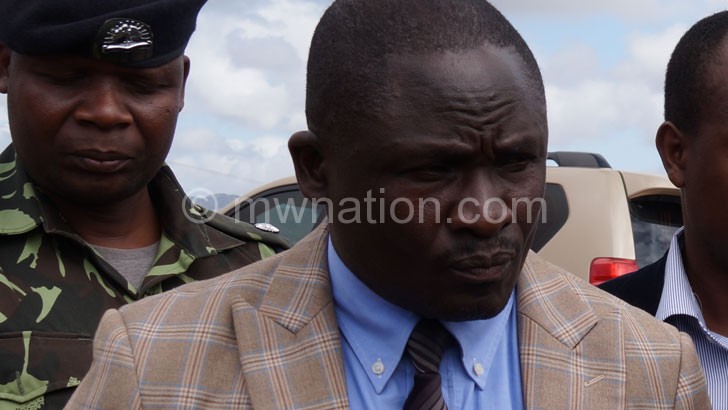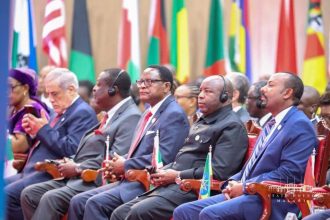Councils bemoan DCs’ ‘nomadic life’
Within three months of being transferred to a new district, a district commissioner (DC) can be moved to yet another district. While Capital Hill has powers of moving the DCs around, their frequent movements have a huge cost to the local communities.
A Weekend Nation survey shows that the frequent transfers derail councils’ development projects or worse still result in abandoned development plans.

Several district councils’ chairpersons we talked to lamented slow progress in implementing their development programmes and blamed the situation on frequent transfers of DCs.
Mchinji District Council chairperson Yona Mtanga claimed the border district is failing to develop like neighbouring Chipata in Zambia because frequent transfers of DCs leave most plans at the council partially implemented.
Mchinji has in the past 10 years changed DCs more than four times. They include Richard Hara, Rosemary Nawasha, Bester Mandele and the incumbent Peter Jimusole, who is on transfer to Mwanza.
Said Mtanga: “In 2017, we had plans to purchase a grader to be upgrading our rural roads but those plans were shelved when we received another DC.”
Mtanga said some councillors are trying to block the transfer of Jimusole because “he has turned things around at the council, including clearing a backlog of debts, developing a district social economic profile and instituting a probe which revealed siphoning of public funds leading to arrests of some council staff”.
Karonga District Council chairperson Steve Simsokwe lamented that government is also moving the DC—Paul Kalilombe—who was posted to the council two years ago, to Capital Hill, a trend he claimed has contributed to slow progress of development in the district.
Records show that Kalilombe has been moved around eight times since 2004 and his shortest stay [four months] was in Dedza.
Said Simsokwe: “By now we should have completed constructing the council rest house, one of the projects earmarked to improve the council’s revenue generation. But the project has stalled because DCs have different priorities and visions.”
Chairperson for Dedza District Council Themuka Mkheu observed that the district has also had its share of the frequent transfers of DCs, adding that some shrewd district council directors take advantage of the situation for their own benefit.
On his part, Balaka District Council chairperson Michael Chauluka observed that plans to have street lights in the township remain a pipe-dream because of the frequent changes at the top of the council’s secretariat.
One DC who spoke on condition of anonymity said a new DC needs at least six months to understand and appreciate challenges of the new office as well as develop a road map and share the vision with the secretariat and other stakeholders.
He said: “One may develop a five-year plan and in the course of sharing that vision you find that you have been transferred. This is depressing and retrogressive.”
Our investigations show that from 2009 to date, over 14 DCs have on average been moved around four times. DC Smart Gwedemula had the shortest stay [three months] in Balaka in 2012.
Government has admitted the existence of the challenge which it says is both political as well having a technical aspect to it.
Principal Secretary (PS) in the Ministry of Local Government and Rural Development Charles Kalemba, in an interview this week, admitted the challenge, saying DCs are politically appointed and answer to the Minister of Local Government, who has powers on when and where to transfer them.
Said Kalemba: “Additionally, government’s position is that a DC should not stay at one place for more than three years because familiarity of a place can also be a problem, but again the frequent transfers of DCs, indeed, disrupt development.
“In every undertaking, leadership is critical and management styles are different; frequent changes of DCs leave communities and other stakeholders at district council confused.”
But Kalemba observed that in some cases central government is forced to move a DC because local communities have demanded so for one reason or another.
Commenting on the issue, Malawi Local Government Association (Malga) acting executive director Harold Mkandawire said the manner in which the transfers are made also makes it difficult for leadership of the councils to effectively carry out meaningful performance and financial accountability over the DCs.
“The ministry has no courtesy to inform the chairperson of the concerned council when making a transfer. This is a blatant disrespect of citizens who own the councils through the elected council members under the fiduciary arrangement.
“Some transfers are politically motivated and sometimes senior technocrats at the ministry use such transfers to settle personal grudges with DCs,” he said.
He said Malga has been lobbying government to amend the Local Government Act to allow councils to hire controlling officers on their own.
Kalemba indicated that government is moving towards such an arrangement, but with caution.
He said: ” Nepotism is still a big issue in Malawi and we don’t want a scenario whereby councils are just recruiting people from their districts and not based on merit.”
The PS pointed out that government plans to review the Local Government Act so that DCs have a performance contract and are given targets, saying “this would make councils tick unlike the current situation where councils operate just to survive”.





